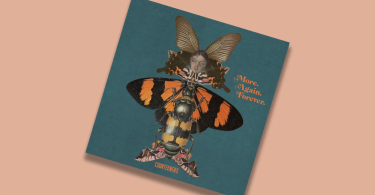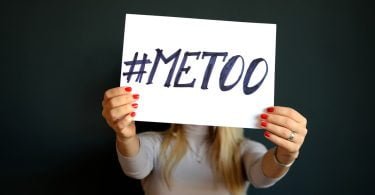Nicki Minaj’s raunchy new video has caused a lot of controversy since it was released on the 19th August, breaking the VEVO record for most views in 24 hours with a whopping 19.6 million view
Nicki Minaj’s raunchy new video has caused a lot of controversy since it was released on the 19th August, breaking the VEVO record for most views in 24 hours with a whopping 19.6 million views on the first day. It’s overtly sexual, with phallic imagery and lots of invitations to ‘look at her butt’. Many have criticised Minaj for the hypersexuality of this video, and Chuck Creekmur, owner of AllHipHop.com, even went so far as to write an open letter pushing her to cover up, suggesting that she should give a less sexualised example to young girls and boys (see senior editor of EBONY.com Jamilah Lemieux’s response to this, ‘Nicki Minaj’s butt is not your daughter’s problem’, for an analysis of why this is problematic).
In his letter, Creekmur describes how in the past he felt that Minaj could become a good role model for his daughter and that when he saw the artwork for Anaconda he was ‘disappointed’. I think that this is the crux of the controversy surrounding the video too, even amongst many feminist thinkers; Nicki Minaj’s overt and unapologetic sexuality has been widely considered demeaning to women and incompatible with feminism. Why is it that even in the 21st century we still cling on to this Victorian squeamishness regarding sex – particularly female sexuality? Some women love sex, as Minaj’s video suggests (okay, ‘screams in our faces’ would probably be more accurate, and I can see how this fierceness could take people aback at first), and these women shouldn’t be made to feel ashamed about it or like they have to hide the sexual part of themselves.
Moreover, why is it that Creekmur is only coming out to criticise Minaj for being a poor role model to children, ignoring countless other examples of the same issue on his own website? As Lemieux points out citing the #lettersyouforgottowrite hashtag on twitter, ‘Creekmur and others who share his outrage failed to pull out the stationary for… other examples of hip-hop’s decades long campaign of violence and sexism’. It’s not like the hip-hop genre is bursting with good role models. And whilst perhaps that is an issue worthy of discussion, the fact that it’s only been brought up when a female star does something that could be considered questionable suggests that this is more likely to do with sexist notions of how women are supposed to behave rather than genuine concern for children.
Male gaze
Way back in 1975, Laura Mulvey coined the term ‘male gaze’ to describe how women in mainstream media are often depicted as passive sexual objects for the viewing pleasure of (heterosexual) men. The article in which she first described this, ‘Visual Pleasure and Narrative Cinema’, is still much-cited and unfortunately still highly relevant today (pictured are 3 adverts using the male gaze, all from the last decade).



This depiction of women as passive sexual objects is very problematic, as it promotes ignoring the thoughts and feelings of the women involved. Minaj’s video has been accused of pandering to the male gaze, but if you look more closely this is clearly not the case; she and her dancers are most definitely not passive in this video. Minaj also deliberately engages with the male gaze and subverts it. One example of this is when she looks as if she’s about to deep-throat a banana, but then the video cuts to her breaking a cucumber in half, savagely chopping a banana to pieces, and then throwing another banana away whilst staring straight at the camera with a disgusted look on her face. The message that Minaj is trying to send here seems pretty clear to me: that when she expresses herself in a sexualised way, it is on her own terms and for her own pleasure, not just for the pleasure of heterosexual male onlookers.
The ending of the video is also important to look at. Once again Minaj completely rejects an idea promoted by the male gaze: that sexualised women have to give the right to their own bodies over to men. She gives Drake a lap dance, but after he oversteps his bounds and tries to touch her, she slaps his hand away and walks off. This sends a clear and powerful message: women can and should be able to express their sexuality on their own terms.
Not just a gender issue
However, it would be grossly short-sighted and racist to act as if this video is just about women or body types. This video clearly addresses race issues experienced specifically by black women. The line ‘Oh my gosh, look at her butt’ references a conversation between two fictional white women from the beginning of Sir Mix-a-Lot’s ‘Baby Got Back’ track. These women are discussing a black woman’s body. They talk about how big and round the woman’s butt is, and imply that this butt that the woman has makes her look like ‘a total prostitute’. This kind of racial stereotyping of black female bodies as automatically highly sexual has persisted for at least 200 years, and as such, black women specifically are more likely to be treated as objects by men than women of other races, making the messages Minaj sends with this video even more valuable. As a white woman, I don’t think that I’m remotely qualified to analyse how well Minaj addresses these issues, but it is definitely important to bear them in mind.
Imperfect feminism
Don’t get me wrong, this video is definitely not perfect when it comes to tackling issues of race, body image and gender. And the song itself has some common drawbacks, such as pitting women of different body types against one another (‘fuck those skinny bitches’), and basing women’s self-worth on attractiveness to men (‘my anaconda don’t want none unless you got buns, hun’). But let’s not let perfect get in the way of good here. I think that with this video Nicki Minaj is sending some positive messages about black women (many of which are also relevant to women in general) that we don’t see enough of in mainstream media:
- Being black and/or having a large posterior does not necessarily mean that they’re really into sex
- But equally, it is okay for them to enjoy sex
- They can and should be able to enjoy sex on their own terms
- Men shouldn’t assume that women (and particularly black women) will just passively give them what they want; they need to respect them as human beings and take their thoughts and desires into account.
So, instead of using flimsy excuses such as the age-old ‘think of the children!’ to disguise criticism that is essentially sexist, let’s have a more balanced debate. Yes, this video and song still have many problematic elements. However, that doesn’t take away from the good parts, and the fact that Nicki Minaj is a woman shouldn’t mean that she’s more deserving of criticism than other artists.
Main image: Vevo








